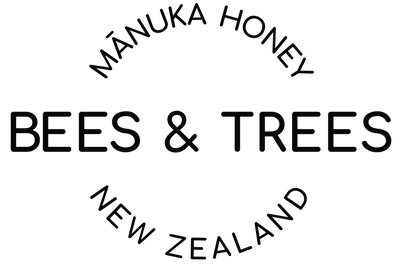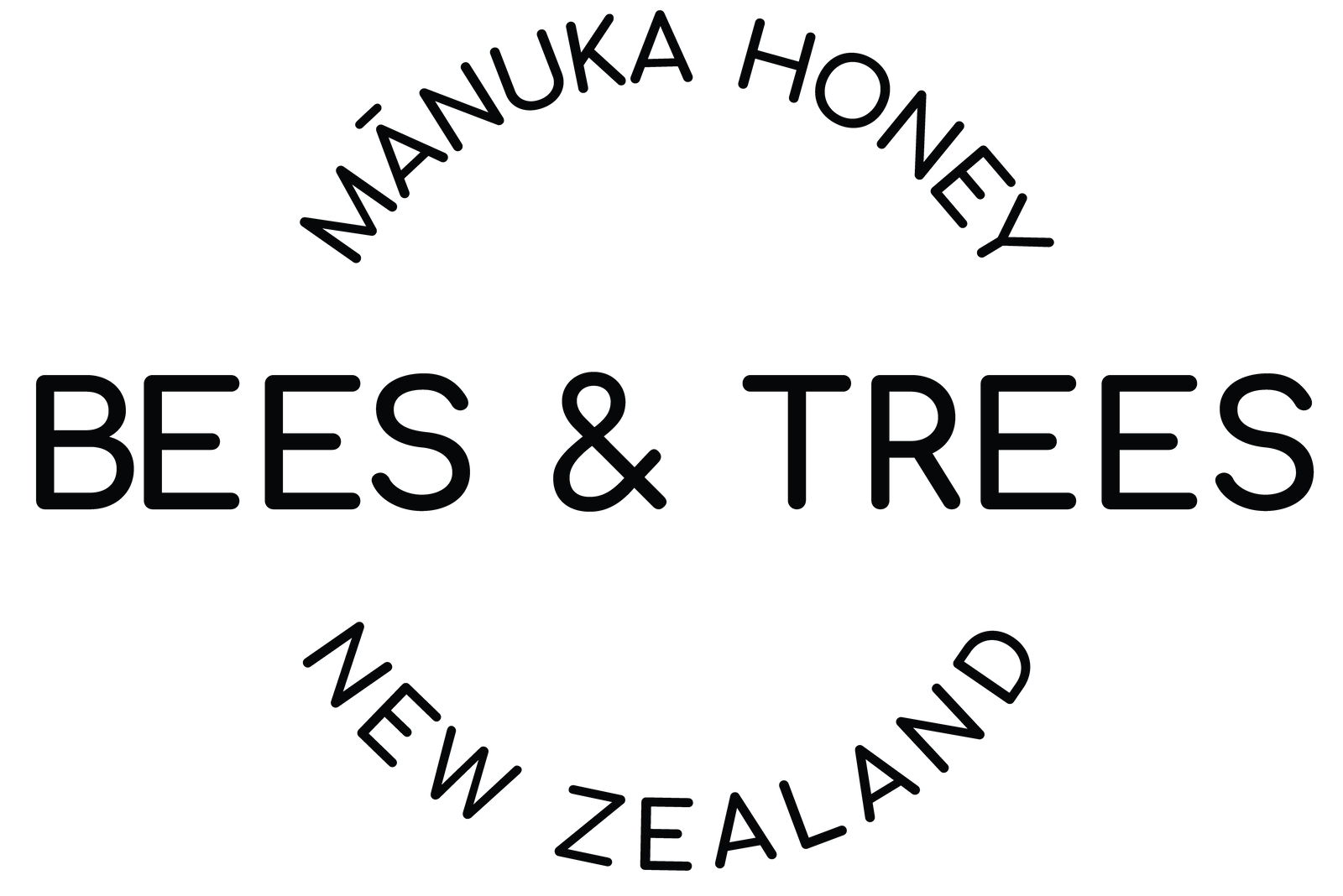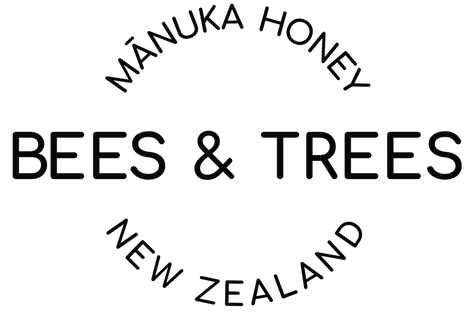The pursuit of youthful, healthy skin can be traced as far back as Cleopatra, who famously bathed in sour milk to maintain her radiant glow. Today, this age-old quest drives countless individuals toward anti-aging skincare products, seeking to reverse the visible effects of aging.
However, because many of these modern skincare products rely on synthetic ingredients, there is a growing interest in natural alternatives. Manuka honey, a unique honey derived from the Manuka tree native to New Zealand, has emerged as a powerful natural remedy for aging skin.
Known for its potent antioxidant properties, Manuka honey offers multiple benefits that can help maintain and restore youthful skin.
But first, we need to understand why our skin ages.
What Causes Our Skin to Age?

Understanding the factors that contribute to skin aging is crucial for addressing and mitigating the aging effects. Skin aging can be categorized into intrinsic and extrinsic aging.
1. Intrinsic Aging
Intrinsic aging, also known as chronological aging, is driven by genetics and nature. Key characteristics include:
- Decrease in collagen and elastin production: As we age, collagen and elastin production drops by about 1% annually, leading to disorganized connective tissue. This causes the development of wrinkles in the dermis layer of the skin.
- Thinning of the epidermis and slower cell turnover: The outer layer of the skin (epidermis) becomes thinner over time, and the rate at which new skin cells are generated slows down. This results in a loss of youthful plumpness and a duller complexion.
2. Extrinsic Aging
- UV exposure: This is a major contributor to accelerated skin aging, and is responsible for up to 80% of visible facial aging signs. This comes as a result of UV rays breaking down collagen and elastin.
- Pollution: This causes oxidative stress which damages skin cells and accelerates aging.
- Smoking: Studies show that smokers have lower skin elasticity and increased skin thickness in certain areas.
- Diet and hydration: Proper hydration is crucial as increased water intake improves skin hydration and elasticity.
The Anti-Aging Power of Manuka Honey

Manuka honey has gained significant attention for its potent anti-aging properties, making it a valuable addition to skincare routines. Its benefits can be attributed to several key factors that work together to improve skin health and appearance.
1. Collagen production and skin firmness
Collagen is a crucial protein that maintains the structure and firmness of the skin. Manuka honey plays a role in boosting collagen production, thanks to its high levels of methylglyoxal (MGO).
In one study, MGO was found to modify collagen, leading to the creation of a more robust extracellular matrix (ECM). Weak and fragmented ECM is associated with thin and weakened skin.
The study also demonstrated that MGO could increase collagen synthesis by fibroblasts—the cells responsible for producing collagen in the skin.
2. Hydration and moisture retention
Manuka honey acts as a powerful natural humectant, drawing moisture into the skin and retaining it. This is essential for keeping the skin hydrated and reducing the appearance of aging.
Research has shown that its high sugar content allows honey to bind water to the skin, significantly enhancing both superficial and deep hydration levels.
It also highlights that honey improves the skin’s barrier function, reducing transepidermal water loss (TEWL) and making the skin more resilient to environmental stressors like UV rays and pollution.
3. Antioxidant protection
Manuka honey is rich in antioxidants, essential for protecting the skin from free radicals and oxidative stress. Free radicals and reactive oxygen species (ROS) are produced both internally, through normal cellular processes like mitochondrial activity and fatty acid metabolism, and externally, from factors such as pollution, UV radiation, and stress.
These oxidants can cause cellular damage and accelerate skin aging.
Honey’s antioxidants neutralize free radicals by donating electrons, reducing their ability to harm cells and vital biomolecules like nucleic acids, proteins, and lipids. Its antioxidant capacity (AOC) is primarily due to its high phenolic compound content.
A study highlighted that Manuka honey from New Zealand boasts the highest total phenolic acid content (235.50 ± 16.01 µg/g) when compared to other varieties, such as Spain’s Forest honey and Thyme honey. This high concentration of phenolic acids and flavonoids plays a significant role in Manuka honey’s robust antioxidant activity, making it particularly effective in protecting the skin from oxidative stress and related aging processes.
How to Use Manuka Honey for Anti-Aging

Manuka honey can be effectively used in various ways to harness its anti-aging benefits, both topically and internally. Below are practical methods for incorporating this natural ingredient into your skincare routine and diet to promote youthful, healthy skin.
1. Topical applications
Here are some of the ways you can apply Manuka honey for anti-aging benefits.
As a face mask:
-
Direct application: Apply a thick layer of pure Manuka honey directly to your face and leave it on for 15-20 minutes, then rinse off with warm water.
-
Turmeric and Manuka honey mask: Combine Manuka honey with turmeric powder to create a mask that offers anti-aging, anti-inflammatory, and antibacterial benefits, ideal for acne-prone skin.
-
Manuka honey and banana hydrating mask: Mash a banana and mix it with Manuka honey to create an ultra-hydrating mask that nourishes dry skin.
As an exfoliant:
-
Lemon and Manuka honey exfoliant: Mix Manuka honey with fresh lemon juice and a teaspoon of organic cane sugar to create a gentle exfoliant. This mixture helps to remove dead skin cells, brighten the complexion, and smooth the skin’s texture.
2. Internal consumption
In addition to topical use, consuming Manuka honey can also benefit your skin from the inside out by providing essential nutrients and antioxidants that support overall skin health.
Honey-infused recipes:
-
Manuka honey smoothie: Blend Manuka honey with fruits, vegetables, and a protein source like Greek yogurt for a nutritious smoothie that promotes skin vitality.
-
Manuka honey in dressings: Use Manuka honey in salad dressings, marinades, or sauces to add flavor and nutritional benefits to your meals.
-
Honey water or tea: Mix Manuka honey into warm water or tea for a soothing drink that helps boost your overall health and supports skin hydration from within.
Daily intake:
-
Recommended consumption: Consuming 1-2 teaspoons of Manuka honey daily can help enhance your skin’s appearance by providing antioxidants and maintaining moisture levels. However, be mindful of its sugar content, especially if you have conditions like diabetes or are monitoring your sugar intake.
By using Manuka honey both topically and internally, you can maximize its anti-aging benefits and maintain healthy, youthful skin.
Choosing the Right Manuka Honey for Anti-Aging

When selecting Manuka honey for anti-aging, focus on the MGO (Methylglyoxal) rating, which reflects the honey’s potency. The higher the MGO, the stronger its antioxidant properties. For anti-aging benefits, we recommend:
-
Mid-activity Manuka honey (350+ MGO): Ideal for daily use, offering a good balance of potency for maintaining skin health.
-
High-activity Manuka honey (550+ MGO): Best for addressing significant skin concerns, such as deep wrinkles or scars, providing enhanced collagen stimulation and protection.
By choosing the right MGO level, you can effectively incorporate Manuka honey into your skincare routine for optimal anti-aging benefits.
Conclusion

Manuka honey is a powerful natural ingredient that offers a holistic approach to anti-aging skincare. With its ability to boost collagen, hydrate deeply, and protect against oxidative stress, it serves as a potent ally in maintaining youthful skin.
As people increasingly turn to natural products, Bees & Trees Manuka honey stands out as a reliable, science-backed option that supports skin health and resilience over time.
Manuka honey is generally safe for sensitive skin, but you can always perform a patch test before applying it extensively.
Disclaimer - Bees & Trees frequently shares publicly available scientific and medical research regarding Manuka Honey. We are not medical professionals and the content of our emails, articles, or website postings should not be construed as medical advice.
References:
-
Skin Ageing: Pathophysiology and Current Market Treatment Approaches - PMC. https://www.ncbi.nlm.nih.gov/pmc/articles/PMC7403684/#:~:text=Skin%20ageing%20can%20occur%20at,to%20disorganization%20of%20connective%20tissue
-
Mitochondrial oxidative stress caused by Sod2 deficiency promotes cellular senescence and aging phenotypes in the skin - PMC https://www.ncbi.nlm.nih.gov/pmc/articles/PMC3292901/
-
Effect of the sun on visible clinical signs of aging in Caucasian skin https://pubmed.ncbi.nlm.nih.gov/24101874/
-
Cigarettes Smoking and Skin: A Comparison Study of the Biophysical Properties of Skin in Smokers and Non-Smokers - PMC https://www.ncbi.nlm.nih.gov/pmc/articles/PMC7230126/
-
Dietary water affects human skin hydration and biomechanics - PMC https://www.ncbi.nlm.nih.gov/pmc/articles/PMC4529263/
-
Two dicarbonyl compounds, 3-deoxyglucosone and methylglyoxal, differentially modulate dermal fibroblasts https://pubmed.ncbi.nlm.nih.gov/19800404/
-
Role of Age-Associated Alterations of the Dermal Extracellular Matrix Microenvironment in Human Skin Aging https://www.ncbi.nlm.nih.gov/pmc/articles/PMC4524793/\
-
Hydration and Barrier Potential of Cosmetic Matrices with Bee Products - PMC https://www.ncbi.nlm.nih.gov/pmc/articles/PMC7321148/
-
Phenolic Compounds in Honey and Their Associated Health Benefits: A Review - PMC https://www.ncbi.nlm.nih.gov/pmc/articles/PMC6225430/#sec8-molecules-23-02322title
-
Phenolic acids and flavonoids profiles of commercial honey from different floral sources and geographic sources https://www.researchgate.net/publication/331505724_Phenolic_acids_and_flavonoids_profiles_of_commercial_honey_from_different_floral_sources_and_geographic_sources





